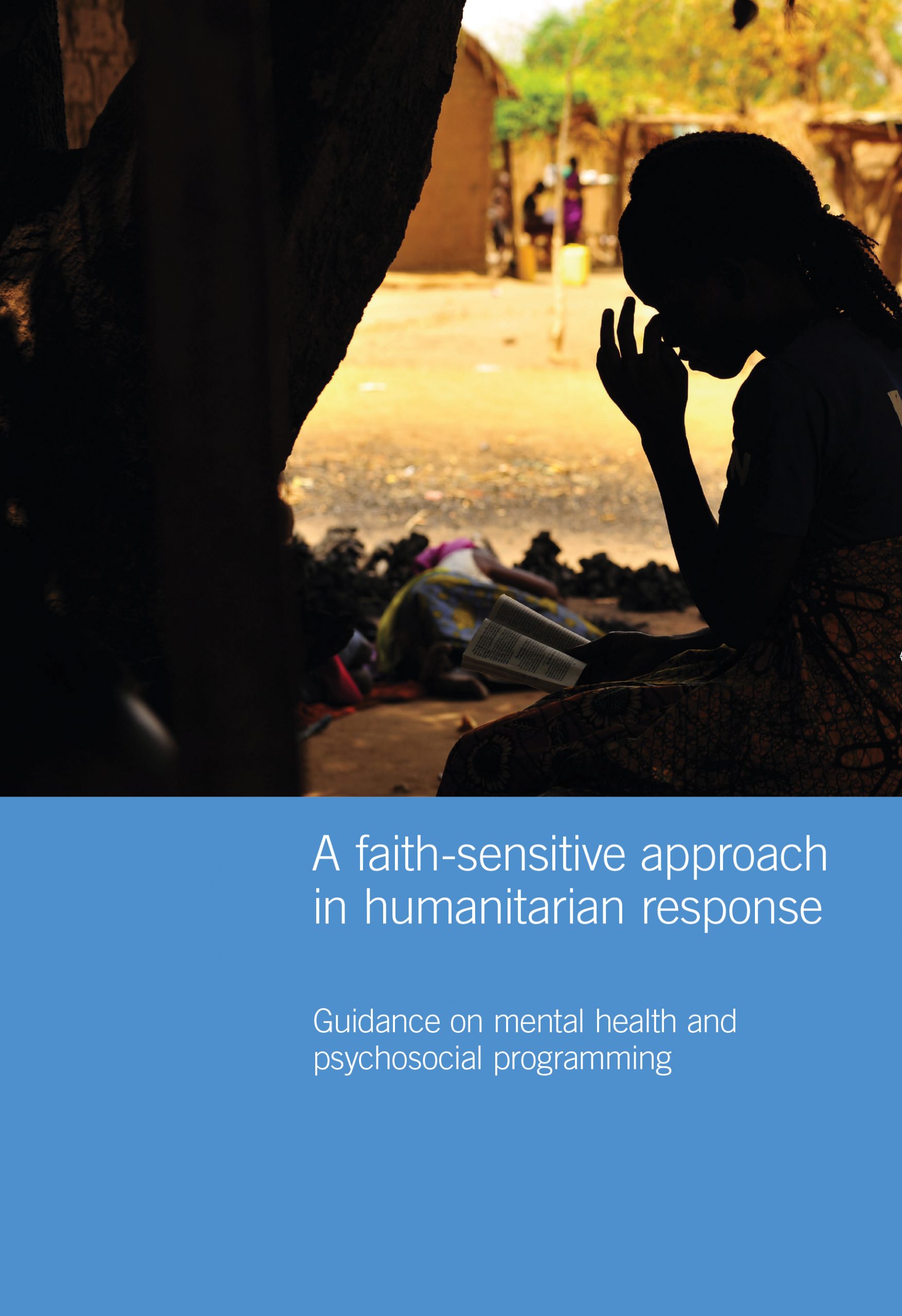Diverse coalition of faith and secular groups launches guidance on ‘faith-sensitivity’ to help humanitarian organisations in their work with refugees at UNHCR event
GENEVA, Switzerland / BIRMINGHAM, England, 29/06/2018
On June 29 the Lutheran World Federation (LWF) and Islamic Relief Worldwide (IRW) are publishing guidance aimed at helping humanitarian agencies to do more to attune the work they do to the faith and background of people affected by conflict, disaster and displacement.
The guidance has been developed through a diverse partnership of both faith-based and non-faith based organisations, involving the UNHCR, the International Federation of the Red Cross and Red Crescent (IFRC), Church of Sweden, HIAS and World Vision alongside LWF and IRW. The aim is to ensure that emergency response truly respects the dignity of those affected by crises, by taking seriously their faith identity.
The manual – entitled: A Faith-Sensitive Approach in Humanitarian Response: Guidance on Mental Health and Psychosocial Programming – is designed to assist both secular and faith-based organisations in their work with refugees and host communities.
“The vast majority of people have some form of faith or religious identity. When disaster strikes or conflict erupts and they have to leave their homes, they don’t leave their faith behind. Faith stays with them as a powerful source of resilience and hope in their efforts to rebuild their lives,”
explains LWF General Secretary, Rev. Dr Martin Junge.
“The intention of faith-sensitive psychosocial support is to address their needs and those of the communities where they settle, whilst remaining true to humanitarian principles of impartiality and neutrality.”
The manual is closely aligned with the Inter-Agency Standing Committee (IASC) Guidelines on Mental Health and Psychosocial Support in Emergency Settings and is available on the IASC website (see below). It aims to strengthen the support given to refugees and displaced people through more effective engagement with local faith communities and religious leaders during humanitarian emergencies. It focuses on the faith perspective and needs of displaced people themselves, rather than on the faith allegiance or secular nature of the humanitarian agencies supporting them.
The guidance addresses faith-sensitivity right across the spectrum of humanitarian response. Sensitivity to religious identity is not only related to the spirituality of those fleeing disasters or conflicts, or the psychological, medical and social arenas, but it also affects practical aspects such as appropriate food, shelter, meeting spaces. The manual addresses these.
“Our pilot projects have shown that religion can be a powerful source of coping and resilience in time of emergency, but it may also be used to promote harmful practices or undermine humanitarian programming efforts,”
says Naser Haghamed, Chief Executive Officer of IRW.
“Our manual seeks to guide humanitarian organisations in their efforts to engage with local faith actors through the “do no harm” principle.”
In this context, the guidance addresses how to respond to a person who has experienced the trauma of a crisis, and the issues this raises for them in terms of their faith or belief systems. The manual also looks at helping people to find psychosocial wellbeing through their faith and the practical means by which faith communities can play a role in offering support.
For example, in the area of health, humanitarian organisations can promote key messages through local faith communities and engage with faith leaders to ensure faith-sensitivity in mental health service provision. They can also work with faith leaders to change social norms that maintain harmful practices, such as forced and early marriage or female genital mutilation.
The guidance, which has been tested in field operations in Africa, Asia and the Middle East, benefited from cooperation with and support from the United Nations High Commissioner for Refugees (UNHCR), as well as IFRC, Church of Sweden, HIAS and World Vision.
Copies of A Faith-Sensitive Approach in Humanitarian Response: Guidance on Mental Health and Psychosocial Programming is available in electronic form here.
NOTES TO EDITORS
High resolution image of the new publication are available for media purposes at https://flic.kr/p/JTpWZt.
This is the latest joint initiative by IRW and LWF. In 2014, IRW and LWF signed a Memorandum of Understanding, marking the world’s first official cooperation between a global Muslim and Christian humanitarian organisation. Over the past four years, the two organisations collaborated in responding to the Nepal earthquake, supporting Syrian refugees in Jordan and meeting the needs of refugees with disabilities in Dadaab camp in Kenya.
The LWF is a global communion of 145 churches in the Lutheran tradition, representing 75.5 million Christians in 98 countries.Through its humanitarian and development arm, the LWF works in over 30 countries with local and international partners to alleviate suffering, combat injustice and poverty, and lay the foundation for a life in dignity for all regardless of race, religion or gender.
IRW is an international aid and development NGO with offices in over 40 countries. It aims to alleviate the suffering of the world’s poorest people by responding to disasters and emergencies and promoting sustainable economic and social development in partnership with local communties – regardless of race, religion or gender.











